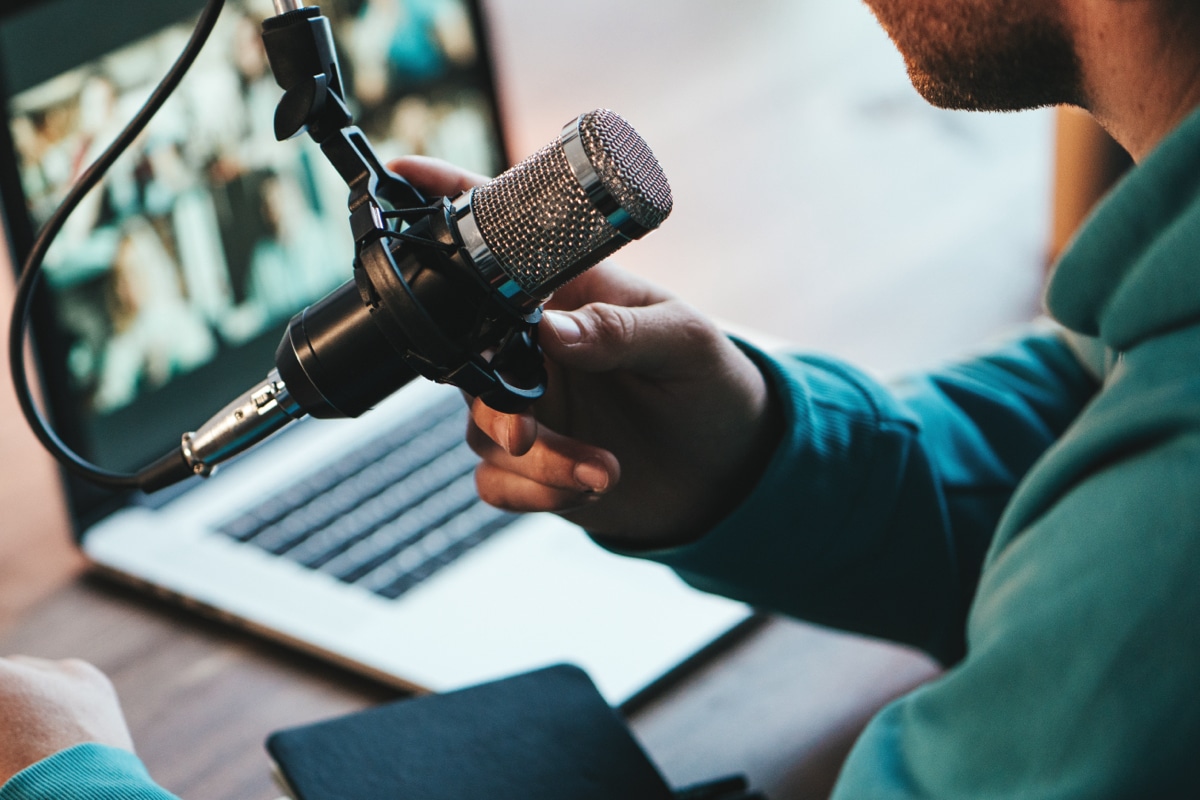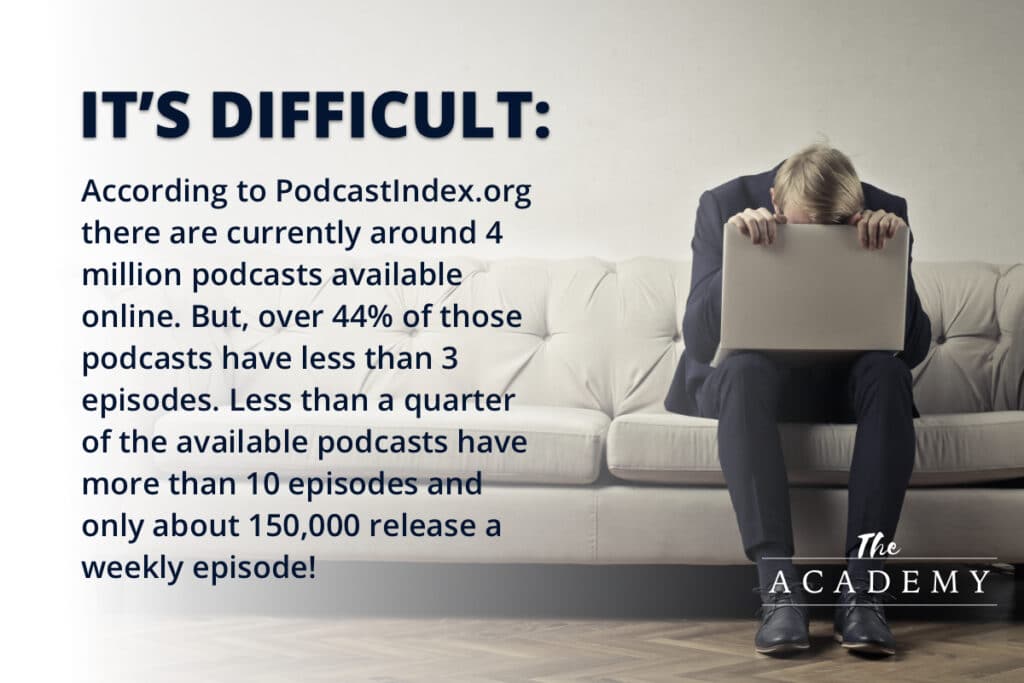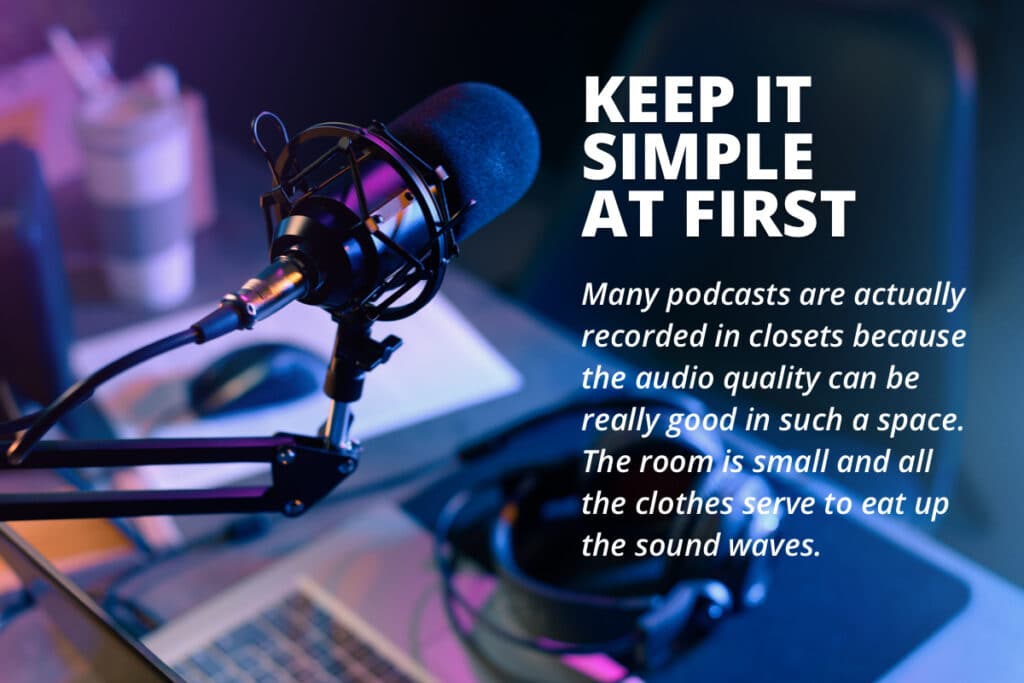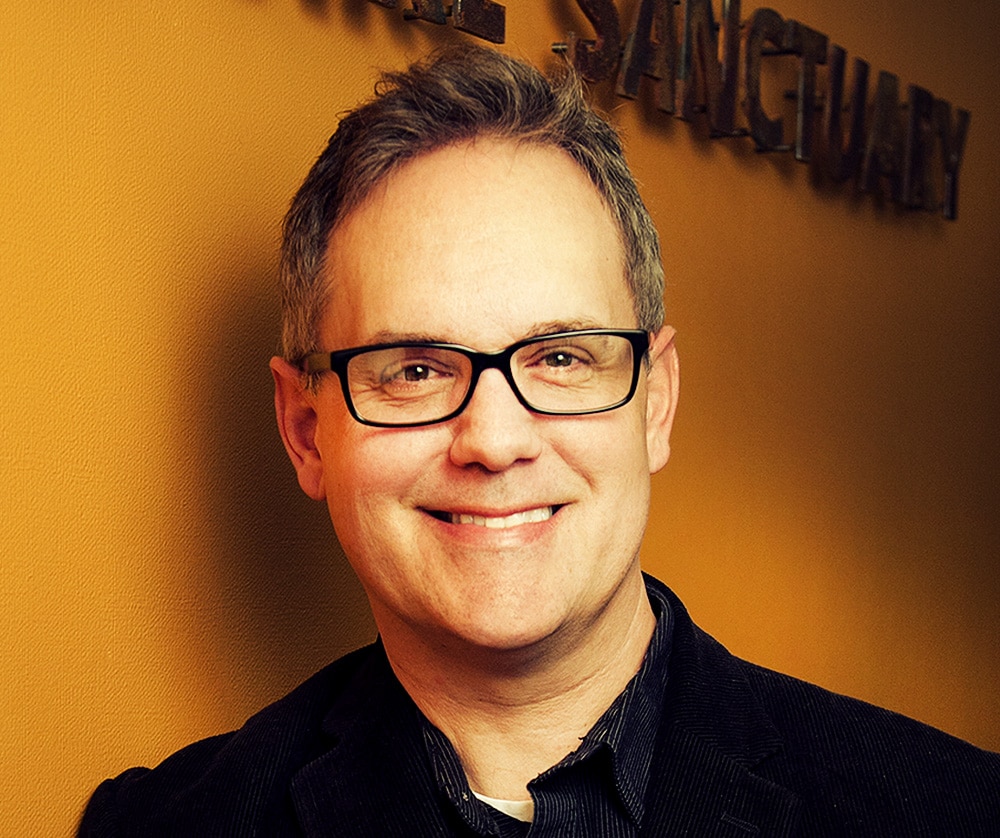
A podcast is a great way to connect with an audience. It doesn’t matter if that audience is big or small, you can effectively use the podcast medium to form a connection and work toward your goals. Of course, success won’t come easily in the crowded podcast space, so it’s important to have a clear vision of where you want to go and how you’ll get there.
With 70 podcast episodes under our belt, now is a great time to pause and pass along some insights on what it takes to start your own podcast. The tips in this article can help you sidestep some of the common issues that new podcasters encounter.
If you’d like to listen to one of our podcast episodes with even more advice click here!
Are Podcasts Worth It?
Perhaps the single best piece of advice that you can get regarding starting a podcast, is that yes, it is worth doing in the first place. Rather than sitting around and contemplating whether or not this project will be worth your time, know that it almost certainly will be worth the time and effort, and you should just dive in right away.
One of the many things to love about this medium is the low barrier to entry that comes with it. Minimal startup costs are required to get going with your own podcast, and you might even already own everything you need. A quality microphone isn’t even a necessity, but those can be had for less than a couple hundred bucks. You can even use free audio editing software to produce the show, and your existing computer can almost certainly handle the job.
Not only is the barrier to entry low, but the market is massive. Hundreds of millions of people listen to podcasts, and you’ll only need to pull a tiny sliver of that market out for yourself in order to make this project a success. Where podcasting was once a small, niche medium, it is now a major player in the media landscape and it seems to be set to remain that way for years to come.
Commit to a Recording Schedule and Stick to It

There is a common pattern among those who start podcasts. They are excited to begin creating their own show, gather up a bunch of equipment, plan out their first episode, and record. After a bit of editing, the show is published and it goes live for the world to enjoy.
What happens next is….nothing. Often, that first show is the only one that ever makes it out into the world, as the creator is discouraged by the lack of attention it receives, or by how much work it actually is to create something worthwhile. With just one show published, the idea moves onto the backburner and quickly fizzles out.
According to PodcastIndex.org there are currently around 4 million podcasts available online. But, over 44% of those podcasts have less than 3 episodes. Less than a quarter of the available podcasts have more than 10 episodes and only about 150,000 release a weekly episode!
We don’t want this to be the story of your new podcast. If you are going to stand any chance at all to find success in this space, it’s important that you have a strategy and commit from the start. Commit yourself to a certain number of episodes at a set interval to give this project an honest chance at finding some traction. After all, if you quit after just one or two episodes, you’ll never know if you were onto something and just gave up before it had a chance to really find its stride.
So, what kind of schedule should you use? Weekly is the most common, but if that sounds too aggressive given your other responsibilities, it’s perfectly reasonable to start with one or two shows per month. Whatever frequency you select, do your best to commit to a full year of producing and releasing podcast content on a regular schedule. By the time that year is up, you’ll have a nice collection of episodes and an idea of how your audience is shaping up.
Determine a Realistic Podcast Format/Style
There are many different types of podcast formats that you might want to consider. While it’s easy to get caught up with grand plans and big ideas for your show, remember to be practical in your planning and keep things feasible. If your ideas are too complex to be executed properly with the time and equipment you have available, the show might fizzle out before you can really get it off the ground.
For example, some podcasts are centered around interviewing guests on each episode. Many of the most popular podcasts in the world are designed this way, but is that a feasible approach for your show? Specifically, would you be able to secure enough guests to keep the show running week after week with new interviews?
Even if you have a few connections in mind who would be willing to do your podcast, that resource might quickly run out and you’ll be left scrambling for a way to make new content. Remember, your new show isn’t going to have a big audience (or any audience), so people you don’t know probably won’t be clamoring to spend their time with you doing an interview just yet.
The safest way to go when getting started is to do either a solo podcast or a show with two regular hosts. This way, you don’t have to track down guests and you can spend your time working on nailing the content, getting comfortable with the format, and delivering value to the people who do decide to listen. If your show finds some footing and you can add interviews to the mix later on, that might be a great way to keep it fresh in the future.
Create a Reliable Recording Space
Another key piece of this puzzle is having a dedicated recording space where you can do your work when creating the show. You don’t want to be scrambling to find somewhere quiet to record each time you are ready to turn on your mic, as that will only add to the overhead of the project and make it much more difficult to stay on schedule.

Fortunately, there are plenty of different places that can work nicely for a recording space. There are a couple of key points to keep in mind when looking for a suitable space. First, you don’t want a big room. Large spaces don’t lend themselves to good audio quality, as your voice will tend to get lost in the volume of the area around you.
Small spaces are the way to go, and ideally, you’ll find a small space with plenty of soft materials around. Soft surfaces soak up sound waves, so they don’t come bouncing back at the microphone and create an echo effect. This is why professional recording studios tend to have foam panels or something similar on the walls – they don’t want echoes making it into the recording.
There is a good chance you may already have a small room with soft materials available in your home, without needing to make any adjustments. Many podcasts are actually recorded in closets because the audio quality is surprisingly good in such a space. The room is small and the clothes serve to eat up the sound waves. If you don’t have access to an actual studio in which to record, your closet just might do the trick.
Have a Solid Podcast Editing Plan
Most of the time creating a podcast entails more than just speaking into the microphone and ending the recording. In many ways, that’s when the real work begins. The audio file you’ve generated will require careful editing to ensure it is polished and ready for publication.
At first, you might think that you could just roll through an audio recording for your podcast without making any serious mistakes, and the file would be pretty much ready to go when you are done talking. In reality, it’s hard to speak into a microphone to create something like a podcast episode, and there are sure to be issues along the way that need to be cleaned up. That could mean taking out short sections where you stumbled over your words, or it could just involve cleaning up coughs and other noises that you don’t want in the recording. Whatever it is, you can’t overlook the role editing is going to play in this project.
There are basically two options when it comes to editing a podcast – you can do it yourself, or you can hire an editor. Since you won’t be making any money off of this show at the start, you’ll probably decide to take the DIY approach. Consider using a free tool like Garage Band or Audacity to do your editing, as the learning curve with these is short and you can effectively be editing in no time. Also, don’t get discouraged if your first edit takes a long time to complete. You will get faster and more efficient with the process as you gain experience.
Plan Evergreen Podcast Content
The last piece of advice that we would like to pass along relates to the content you put into your show. Specifically, consider using an evergreen approach to the things you discuss and the topics you cover. As a new podcast, you aren’t going to have an audience established, and very few people will be listening to your content at the start. So, if your content is timely, by the time anyone finds it and listens to it later, it will be out of date and irrelevant.
It is essential to create a catalog of episodes that maintains its relevance over time, enabling new listeners who discover your show to fully engage with your offerings. For instance, imagine someone stumbling upon a new episode a year from now and thoroughly enjoying it. They might be inclined to explore your catalog to indulge in all the available shows. By crafting evergreen topics for these episodes, you can provide a delightful experience, leaving a lasting impression and potentially inspiring them to recommend your show to others.
Your podcast doesn’t have to be a huge hit on the charts to be a success for your business. In fact, it probably won’t register massive download numbers like some of the biggest shows, and that’s just fine. As long as you are connecting with your audience effectively and delivering value to your listeners, even a small show can have a big impact. Good luck and have fun with this project!
Most Popular Articles

Seeing Favicons in Your Google Search Results? Here’s Why…
Have you noticed anything different in your Google Search results lately? Google added tiny favicon icons to its organic search results in January. It was…

Business Growth and Digital Marketing News & Tips 11-17-24
Are you encouraging and rewarding innovation? Lee Cockerell is the former Executive Vice President of Operations at Walt Disney World. A lover of traditional red…

Business Growth and Digital Marketing News & Tips 11-27-24
A culture of gratitude "Feeling gratitude and not expressing it is like wrapping a present and not giving it." – William Arthur Ward Beyond being…








